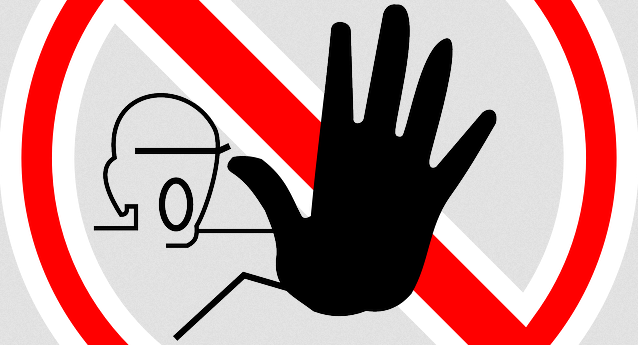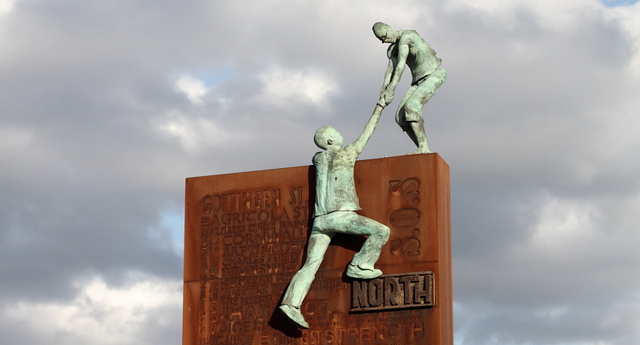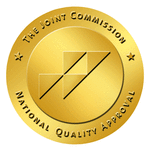Recovery And Self-Care For The Long-Haul
By Paul J. Wolanin MA, CADC
The Marathon, Not The Sprint
Recovery from drug and alcohol addiction is a marathon, not a sprint.
Do you know how a sprinter trains for a race? They sprint! They focus on getting to their goal – the finish line – as quickly as possible. They use all their physical and mental resources within seconds to achieve their goal.
If you’ve ever watched top-level sprinters on television, you can see the intensity in their faces. They are hell-bent on staying one stride ahead of whoever is next to them. Their muscles flex, veins pump with blood and their eyes are fixed ahead. They do not let up for a second. Why? Because tiny mistakes have giant consequences in a sprint race – there is very little margin for error.
Addiction Recovery Is Like A Marathon
What about running a marathon? Have you ever watched one? That’s hard to do. A marathon is typically 26.2 miles and it would difficult to watch every single runner during the entire race.
First of all, the marathon course covers an enormous amount of ground. Secondly, there are usually dozens – if not hundreds or thousands – of people involved. Keeping up with every single one of them would be next to impossible.
What’s interesting about marathon runners is how in tune with their own abilities. Like staying on track in addiction recovery, they are:
- They know their strengths and weaknesses.
- They know how to pace themselves in order to conserve energy.
- They set small goals along the way.
- They do not focus on beating the person next to them.
- They are masters of their own minds and bodies and know without doubt that the mind controls the body.
- Most have mastered the “inner game” of distance running – they understand that failure happens in the mind first and in the body second.
- Marathon runners know that they can only be as good as the food they use to fuel their bodies.
- They have a level of dedication unlike most “common” runners. Marathoners may train for months on end for a single race.
I love the concept of distance running. It parallels addiction recovery in so many ways. Though I’ve never personally ran a marathon, I have several close friends that do so often. What’s so cool about a marathon is the idea of progress.
A sprinter can see the finish line. They can visually lock their eyes on their goal and give every ounce of their energy towards crossing the finish line first. It’s an all-out, no holds barred battle to get across that line.
A marathon runner can’t see the finish line. They cannot even see the entire course. They must constantly monitor their heart rate, breathing, hydration levels and pay attention to what their bodies are telling them. They have to deal with many variables and make adjustments along the way. I’ve been told that it takes great amounts of self-restraint to conserve energy when the body just wants to GO. The marathoner is a master of pacing and diligence.
Pacing And Diligence In Your Own Addiction Recovery
There is hope for treating drug addiction. These concepts of pacing and diligence apply directly to recovery and self-improvement. In fact, these two little words can have a dramatic impact on how you see success, failure and goal setting.
Let’s think of pacing as: “steady and consistent effort.” And diligence as: “careful and persistent work.”
Think about this and fill in the blanks as an exercise:
EXERCISE: What Are Some Long-Term Goals You Have?
- For your recovery
- For your health
- Financially
- For your relationships
- With work
- For your spiritual life
- For your emotional well-being
- For leisure
- Other________________________
2. What kinds of activities are you are most likely to procrastinate about?
3. What are the things that take priority in your life today? (Remember that what is truly important to someone is demonstrated through action).
4. What kinds of excuses have you used to avoid working on your goals?
5. What would your life be like if you DID NOT begin to work towards these goals?
6. Would COULD your life be like if you DID begin to work on these goals (using pacing and diligence)?
You Can’t Rush Quality
The concepts of pacing and diligence apply to everything in life. My Grandfather used to tell me “Son, you can’t rush quality!” and boy was he right! Good things in life take time to accomplish. Things that come too quickly or easily never last.
A great illustration of pacing and diligence is the 12-step program. I know that I will never reach my goal of being recovered – I can just keep making good choices; working the steps each and every day and trusting God. The longer I am in recovery, the better my life gets. The closer I become to God, the more I depend on Him to provide what I need. The less time I spend focusing on problems the fewer problems I have. I learned all of this through 12-step programs. I learned to be patient and to not pray for what I WANT, but for what GOD WANTS FOR ME.
All this took and still takes lots of time. I’m cool with that. I’ve learned that things will happen in my life when I am prepared for them to happen. Not before or after. Just when the time is right.
Put It All Into Perspective
I make progress. Sometimes it feels like I’m standing still because the speed of my progress does not fit my own expectations. This is when the marathon of life becomes a sprint and things start to go wrong. When I start sprinting instead of pacing myself I run out of steam. I get frustrated and make mistakes. My life becomes unbalanced.
I must remember to slow down and remember that pacing and diligence are the things that will bring me (hopefully) to where I am meant to be. This does not mean I do not have goals – I have many. I hope that you do, as well.
Take some time and review the questions in this article. If you’re feeling really adventurous, take out a pen and paper and answer the questions like you would in a journal. Be as thorough as you would like to be. A great way to open up the mind is to journal without borders (meaning that you are not stopping to re-read what you’ve written, checking for spelling errors, etc. YOU JUST WRITE). And check out these other tips and tricks for addiction recovery.
For now, just begin.
To be continued.
Photo credit: Steven Depolo





 RSS Feed
RSS Feed
